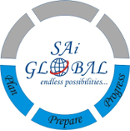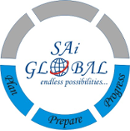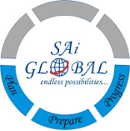Singapore
Singapore
Singapore is a hi-tech, wealthy city-state in south-east Asia, also known for the conservatism of its leaders and its strict social controls. The country comprises the main island – linked by a causeway and a bridge to the southern tip of Malaysia – and around 50 smaller islands.
Singapore is separated from Peninsular Malaysia by the Straits of Johor to the north, and from Indonesia’s Riau Islands by the Singapore Strait to the south. The country is highly urbanised, and little of the original vegetation remains. The country’s territory has consistently expanded through land reclamation.
The islands were settled in the second century AD and subsequently belonged to a series of local empires. Modern Singapore was founded in 1819 by Sir Stamford Raffles as a trading post of the East India Company with permission from the Johor Sultanate. The British obtained sovereignty over the island in 1824, and Singapore became one of the British Straits Settlements in 1826. Occupied by the Japanese during World War II, Singapore declared independence from the United Kingdom in 1963 and united with other former British territories to form Malaysia, from which it was expelled two years later through a unanimous act of parliament. Since then, Singapore has developed rapidly, earning recognition as one of the Four Asian Tigers.
Commercialization
Singapore is one of the world’s major commercial hubs, with the fourth-biggest financial centre and one of the five busiest ports. Its globalised and diversified economy depends heavily on trade, especially manufacturing, which represented 26 percent of Singapore’s GDP in 2005. In terms of purchasing power parity, Singapore has the third-highest per capita income in the world but one of the world’s highest income inequalities. It places highly in international rankings with regard to education, healthcare, and economic competitiveness. Approximately 5.4 million people live in Singapore (June 2013), of which approximately two million are foreign-born. While Singapore is diverse, ethnic Asians predominate: 75 percent of the population is Chinese, with significant minorities of Malays, Indians, and Eurasians. There are four official languages, English, Malay, Mandarin, and Tamil, and the country promotes multiculturalism through a range of official policies.
Climate
Singapore has a tropical rainforest climate with no distinctive seasons, uniform temperature and pressure, high humidity, and abundant rainfall. Temperatures usually range from 22 to 35 °C (72 to 95 °F). Relative humidity averages around 79% in the morning and 73% in the afternoon. April and May are the hottest months, with the wetter monsoon season from November to January. From July to October, there is often haze caused by bush fires in neighbouring Indonesia. Although Singapore does not observe daylight saving time (DST), it follows the GMT+8 time zone, one hour ahead of the typical zone for its geographical location.
Types of Visas for Singapore
Employment Pass
The Employment Pass allows foreign professionals to work in Singapore. It applies to foreigners who earn a fixed monthly salary of at least $3,300, and have acceptable qualifications. Employers must make applications for Employment Passes on behalf of a job candidate. Any change of employer will require a new application.
EntrePass
Foreign entrepreneurs who would like to start businesses in Singapore should apply for the EntrePass.
S Pass
The S Pass allows mid-level skilled foreigners who earn a fixed monthly salary of at least $2,200 to work in Singapore. Employers must make S Pass applications on behalf of a job candidate.
S Pass applications are assessed on multiple criteria including salary, education qualification, skills, job type and work experience.
Training Employment Pass
Foreigners undergoing practical training attachments for professional, managerial, executive or specialist jobs in Singapore should apply for a Training Employment Pass.
Contact us:
India : (1)-1354-6897
Email : info@saiglobal.org



